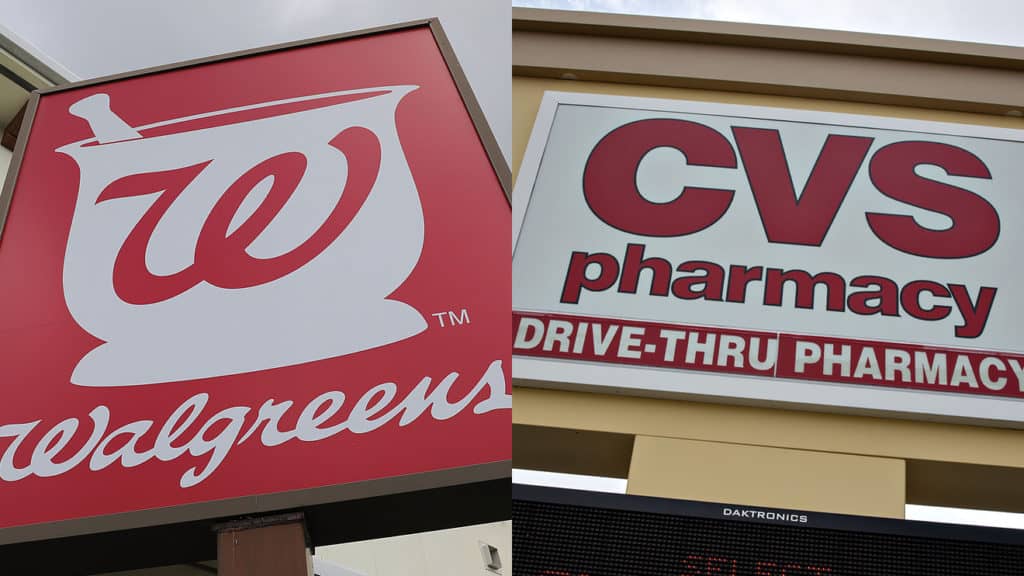
By Dan Murphy
On Aug. 30, New York Attorney General Letitia James took action to protect New Yorkers’ access to reproductive health care prescriptions and products at CVS and Walgreens pharmacies. Employees at CVS and Walgreens stores in other states have reportedly refused to provide customers with birth control, condoms, emergency contraceptives, and/or other medications related to reproductive health. Attorney General James sent letters to both CVS and Walgreens reminding the retail pharmacy giants that it is illegal in New York to deny customers prescribed or over-the-counter medications or products related to reproductive health care.
“Pharmacies have a responsibility to safeguard New Yorkers’ health, including by providing reproductive health care medications and products,” said Attorney General James. “The actions taken by some CVS and Walgreens employees in other states have sparked concerns nationwide and have raised serious questions that must be addressed. Let me be clear: I will not accept New Yorkers being denied access to essential health care products and services. I am proud to stand up for New Yorkers’ reproductive rights, and I will always fight to preserve access to birth control and other reproductive health medications and options.”
New Yorkers seeking contraception or other reproductive health products at these two major chains have a right to receive those essential products. Reports from other states indicate that some employees at CVS and at Walgreens have refused to provide reproductive health products or services, and some Walgreens employees have even mistreated consumers by publicly harassing, embarrassing, and shaming them. In her letters, Attorney General James makes clear that similar behavior by CVS or Walgreens employees at any of their more than 1,000 locations throughout New York state is a violation of New York’s public health and civil rights laws.
Attorney General James requests that CVS and Walgreens provide more information about their refusal policies, which Walgreens has stated allows pharmacists to step away from filing a prescription for which they have a moral objection. It appears that the policy, in practice, may infringe upon New Yorkers’ rights. Attorney General James is also requesting that Walgreens and CVS provide more information about:
The amount of time that CVS and Walgreens consider “timely” in fulfilling a prescription or completing a sales transaction where there has been a refusal, and all complaints concerning CVS and Walgreens refusals at New York locations for the past six years.
In July, Attorney General James sued CVS for violating antitrust laws and hurting New York safety net hospitals and clinics that provide care for underserved communities across the state. CVS required New York safety net hospitals and clinics to exclusively use a CVS-owned company, Wellpartner, to process and obtain federal subsidies on prescriptions filled at CVS pharmacies. CVS’s scheme forced safety net health care providers to incur millions in additional costs, while CVS continued to benefit through its subsidiary.
The lawsuit alleges that CVS’s unfair business practice deprived safety net hospitals and clinics of critical federal funding that could have been used to improve and expand patient care. “CVS’s actions are a clear example of a large corporation using its clout and power to take advantage of institutions and vulnerable New Yorkers, but my office will not allow it. We are taking action to stop CVS’s harmful practices and recoup critical funds to improve health care for our communities. When powerful corporations undermine the health and wellbeing of vulnerable communities in New York, they can expect to hear from my office.”
For years, CVS did not allow New York safety net hospitals and clinics to use the company of their choice to obtain subsidies on prescriptions filled at CVS pharmacies through the 340B federal program. This program allows safety net hospitals and clinics to purchase certain drugs at a discount from pharmaceutical companies and use the savings for patient care. To realize the benefits of the 340B program, safety net hospitals and clinics must contract with the pharmacies that are used by their patients. Under the CVS scheme, thousands of safety net health care providers across the state were only allowed to use Wellpartner to process claims filled at CVS retail and specialty pharmacies.
The lawsuit alleges that New York patients were the ultimate victims of CVS’s unfair practice, which siphoned off critical federal funding from safety net health care providers that could have used the funds to improve access to health care for the neediest New Yorkers — including New Yorkers without health insurance or an ability to pay for health care.





